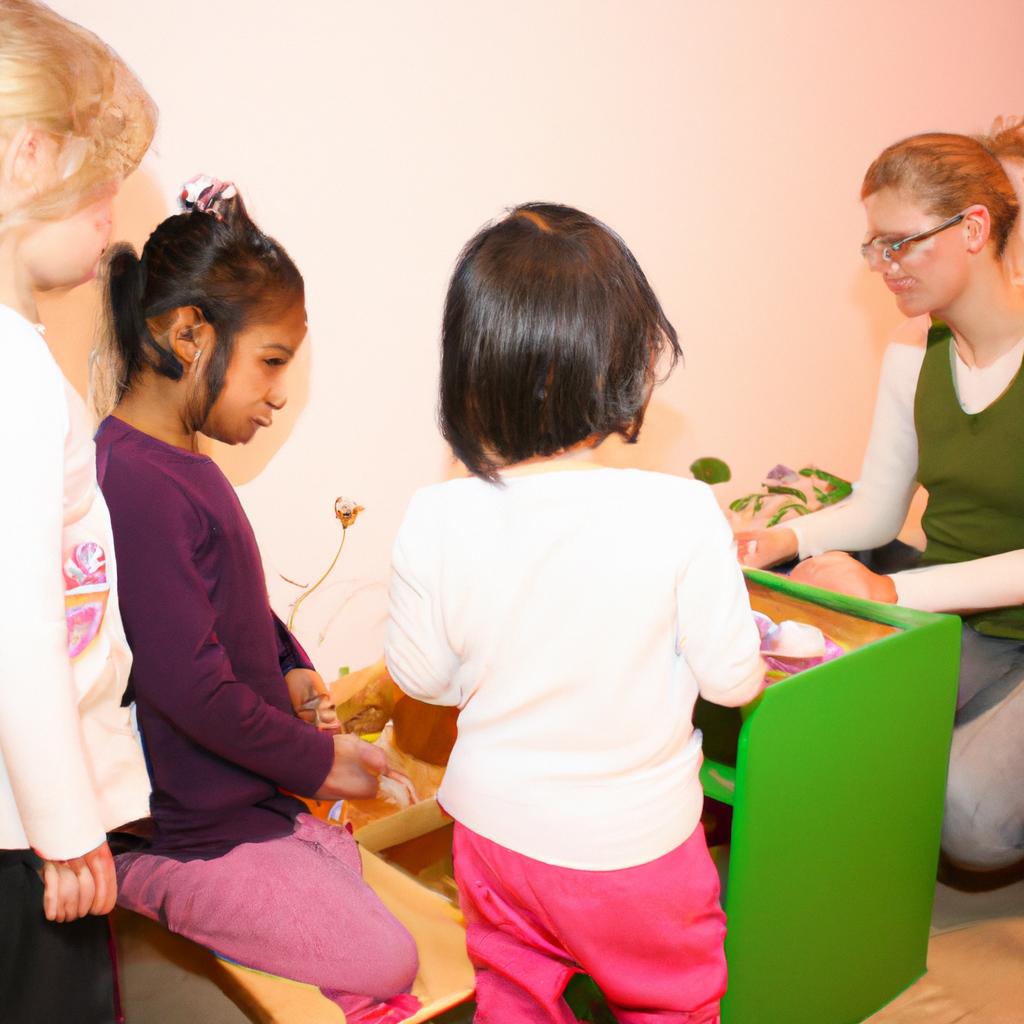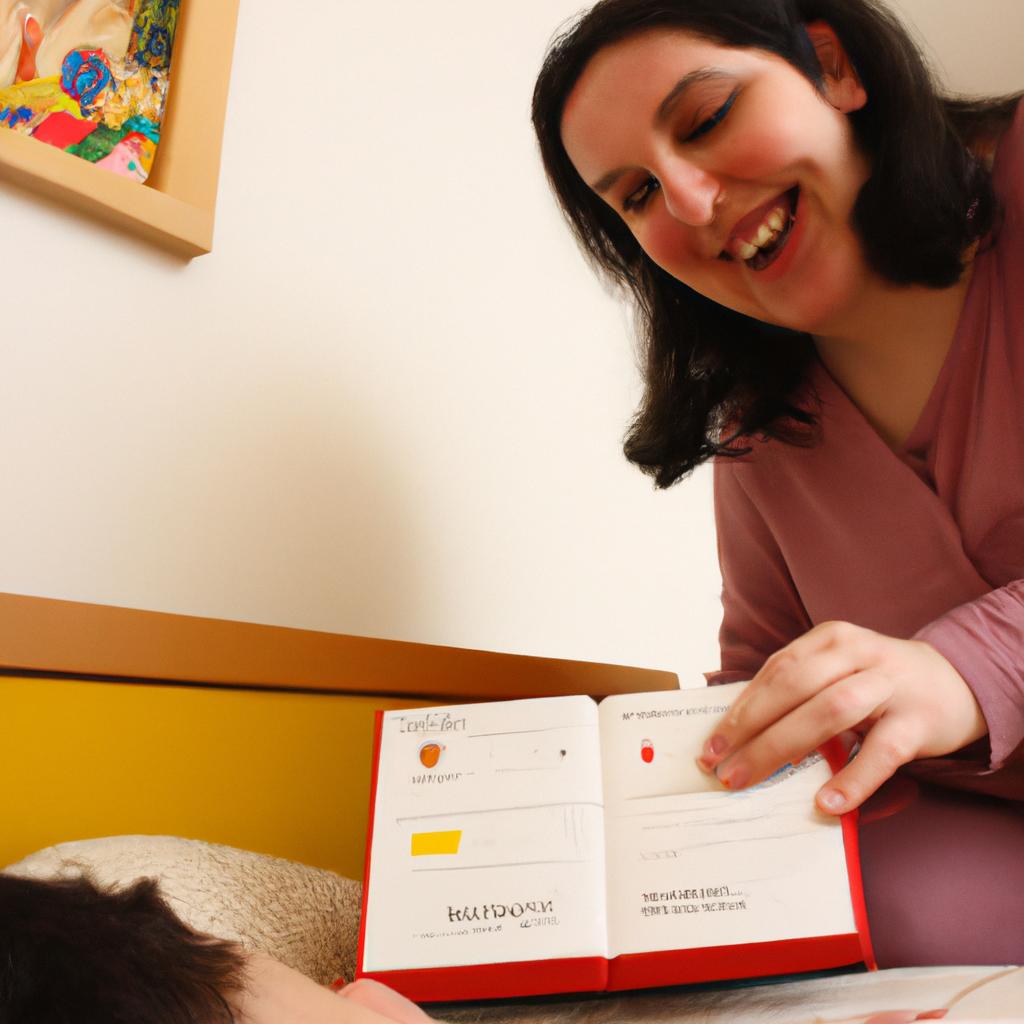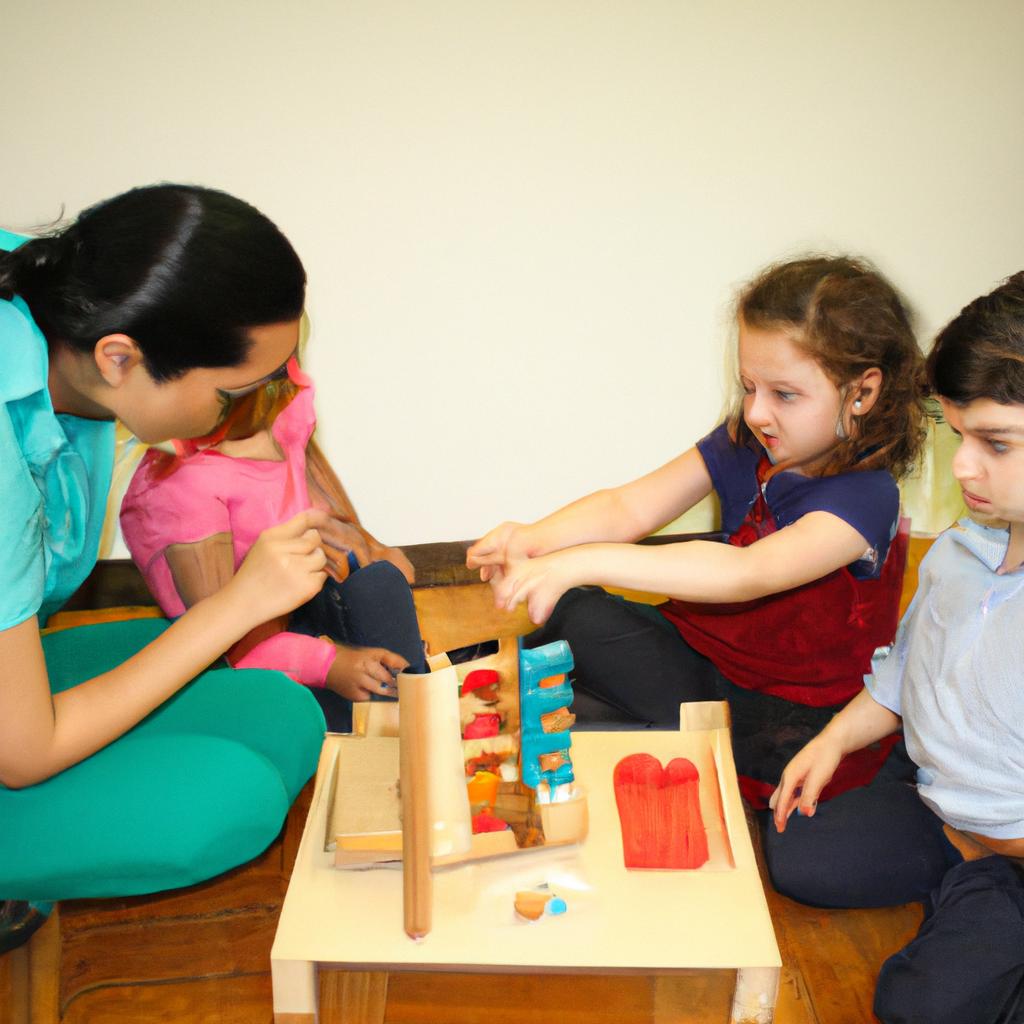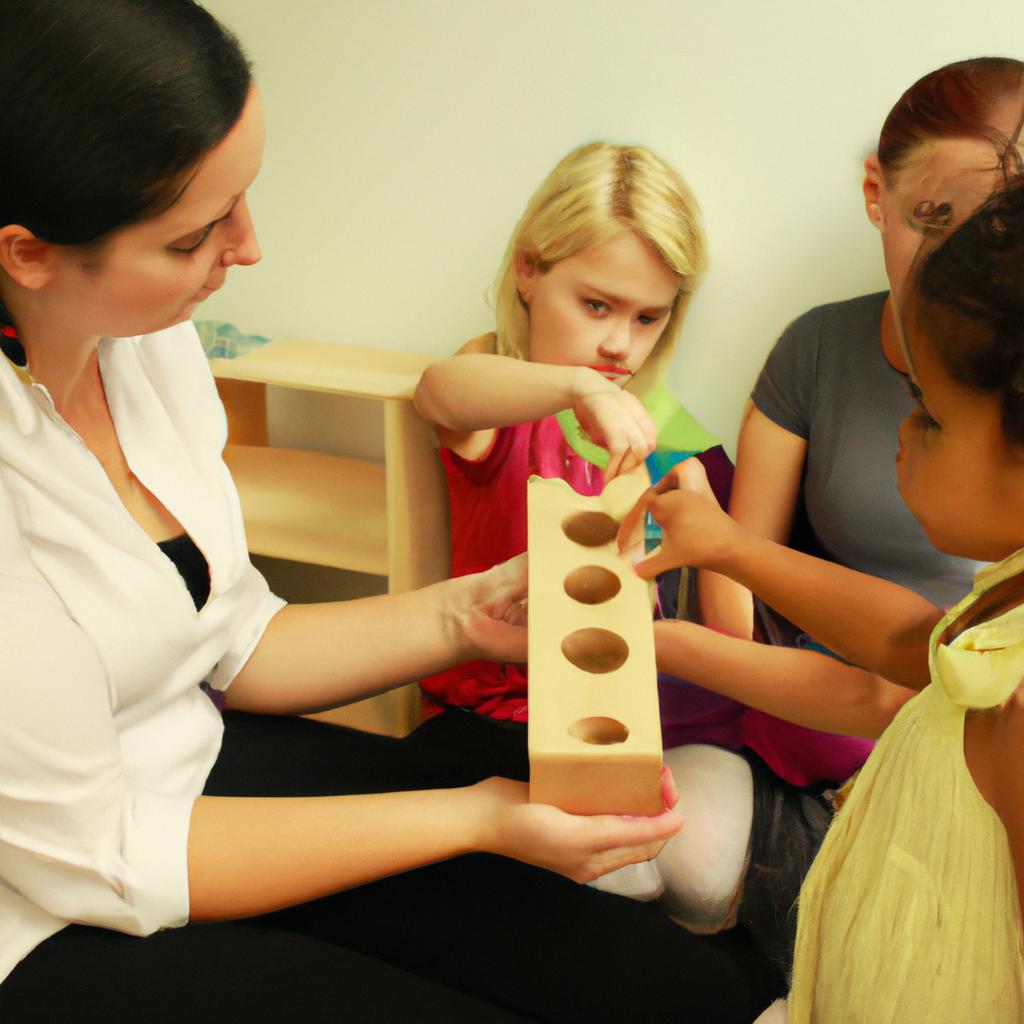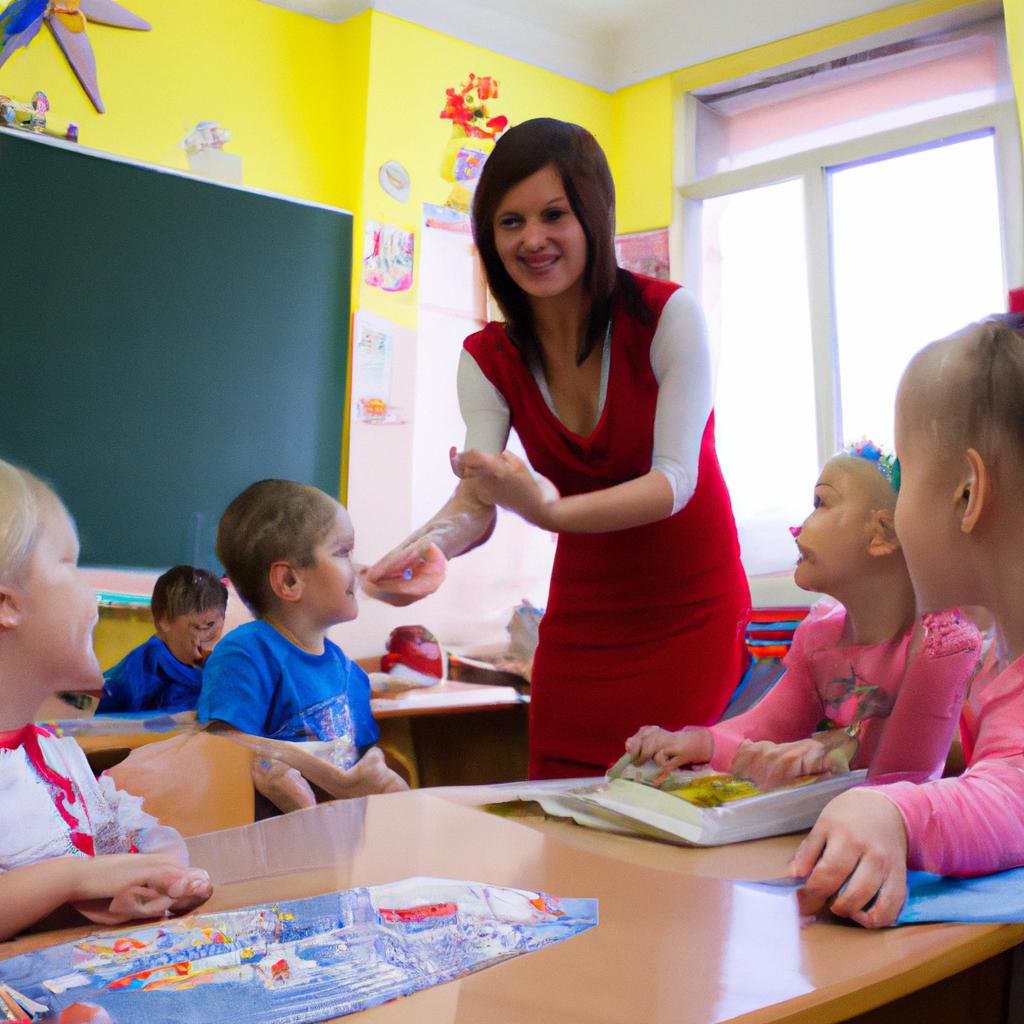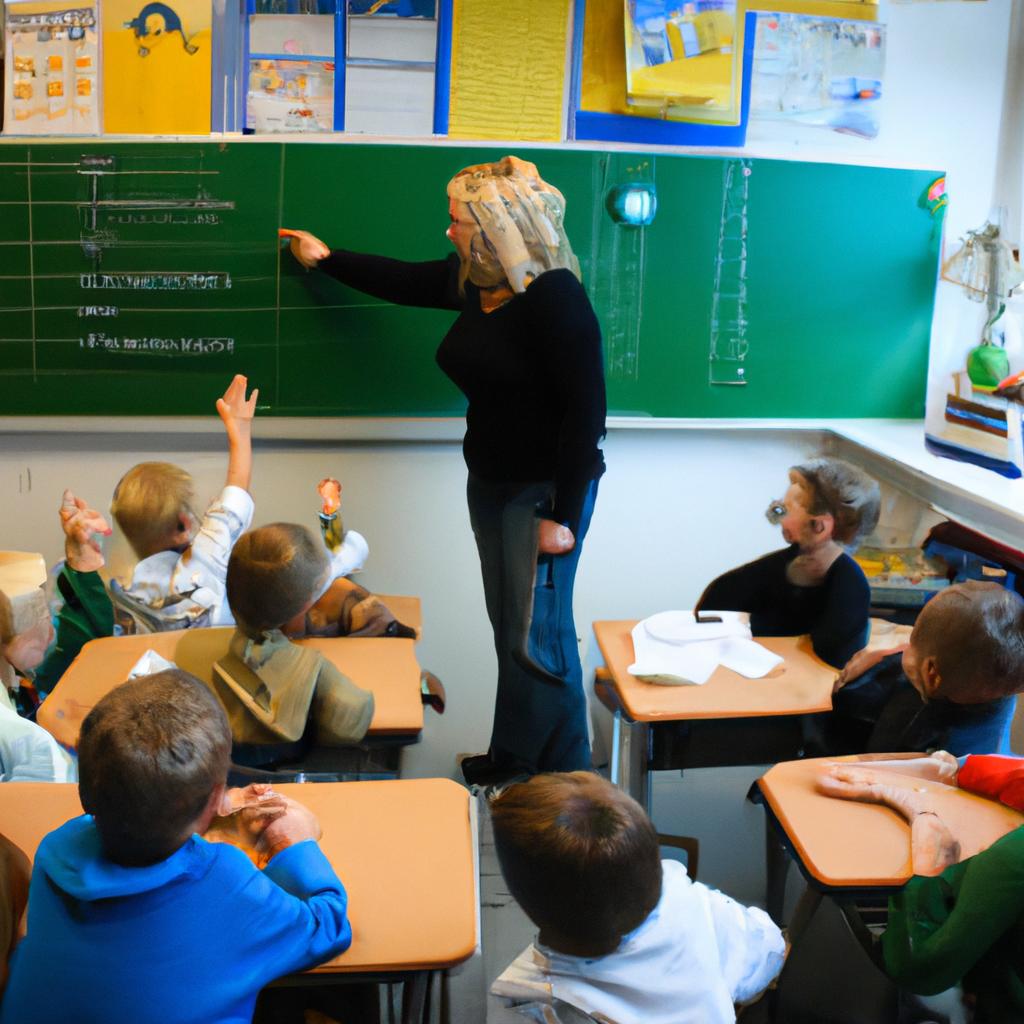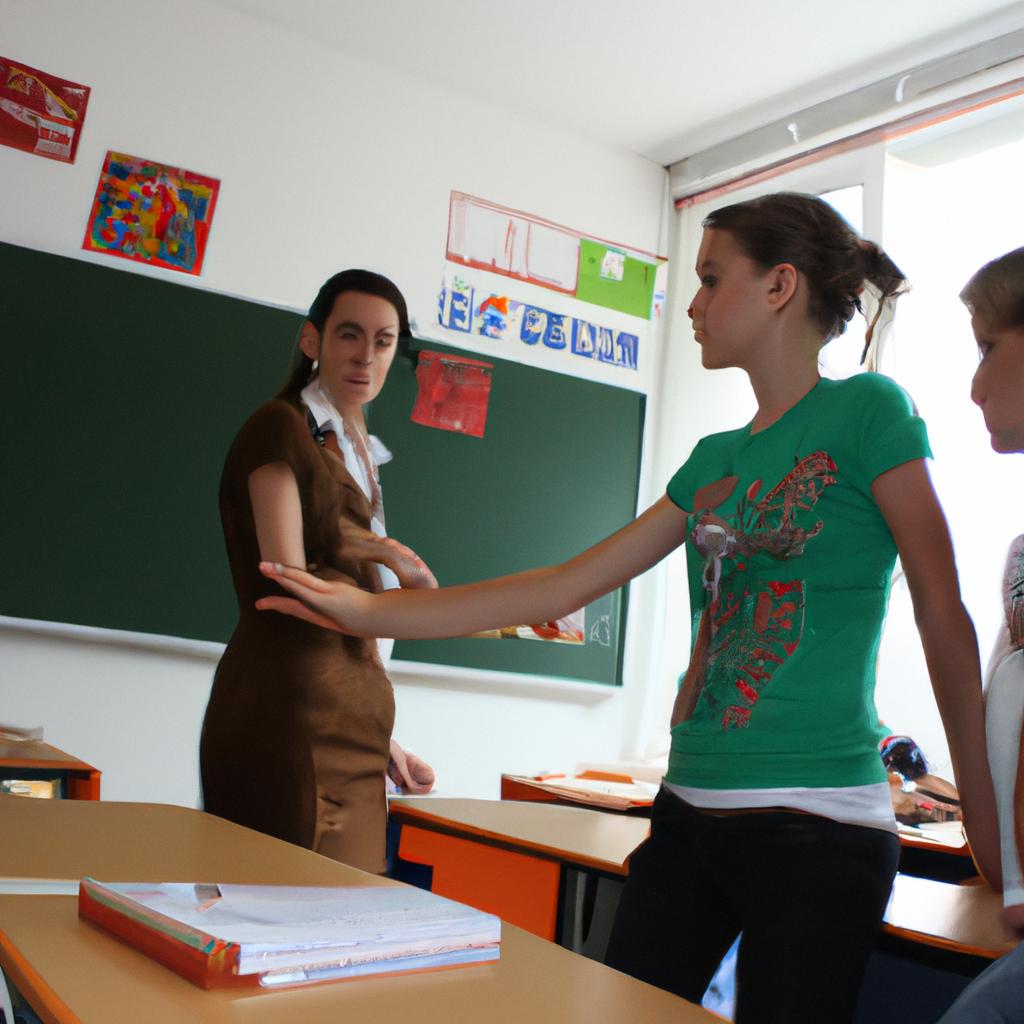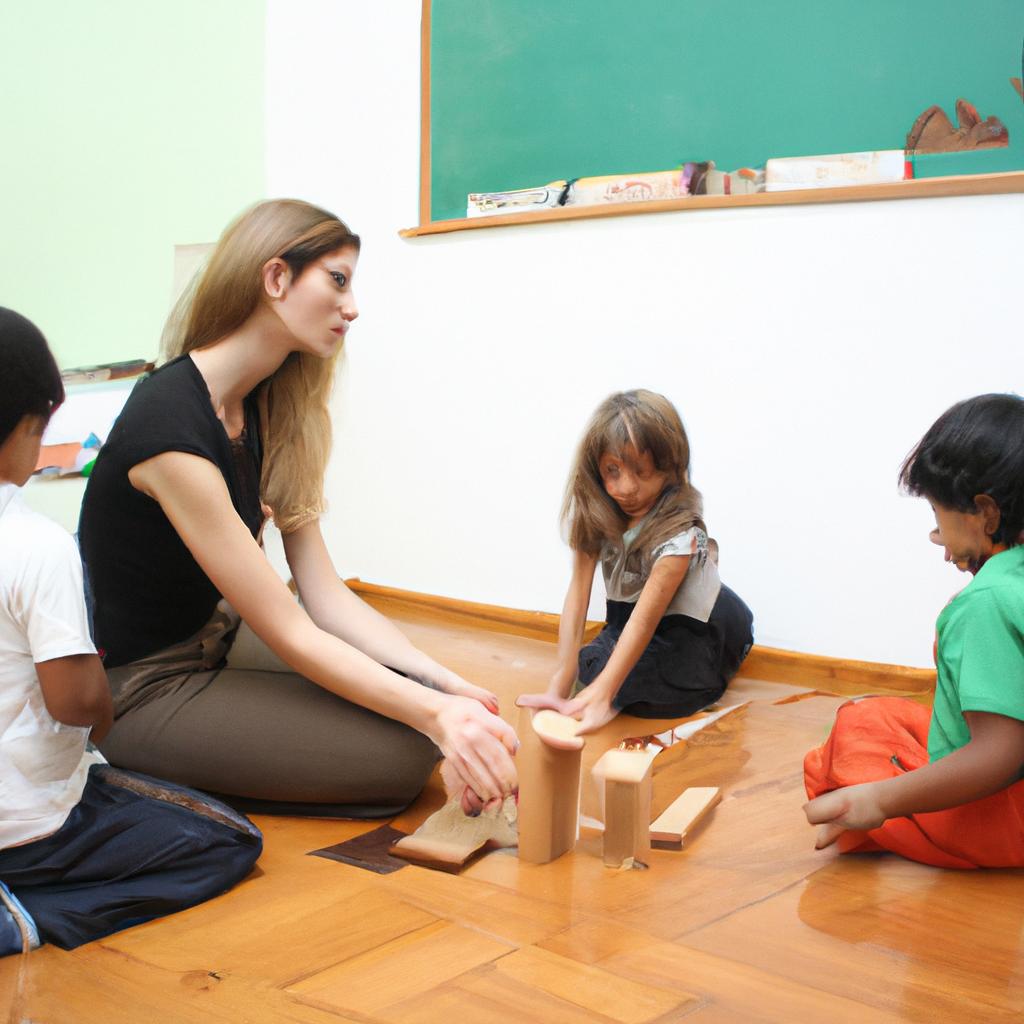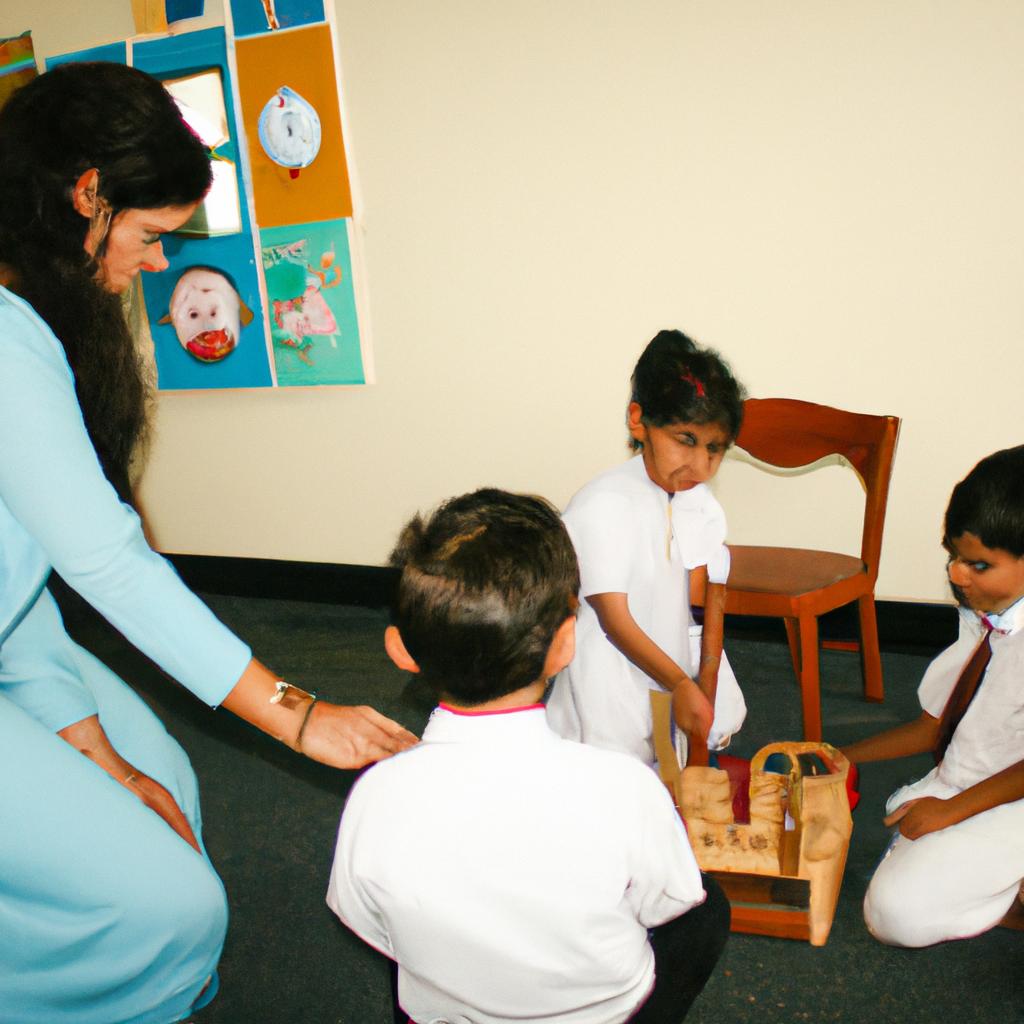In today’s highly interconnected and rapidly changing world, possessing strong social skills is becoming increasingly important. The ability to effectively communicate, collaborate, and empathize with others not only enhances personal relationships but also plays a crucial role in professional success. One educational approach that has long been recognized for its emphasis on promoting social skills is Montessori education. With its child-centered principles and focus on fostering independence and self-discipline, Montessori education provides an ideal environment for cultivating essential social competencies.
Imagine a classroom where children of different ages work together harmoniously, helping one another and respecting each other’s unique abilities. This vision becomes a reality in many Montessori classrooms around the world. In these environments, students are encouraged to interact with their peers in a cooperative manner, developing vital social skills such as effective communication, conflict resolution, and teamwork. Through engaging activities and purposeful interactions within mixed-age groups, children learn how to navigate complex social dynamics while appreciating the diversity of perspectives and experiences.
Research supports the notion that Montessori education enhances social development. Studies have shown that Montessori-educated children tend to exhibit higher levels of empathy, cooperation, and problem-solving abilities compared to their counterparts in traditional educational settings (Lillard & Else-Quest , 2006). This can be attributed to the emphasis on fostering independence and self-regulation in Montessori classrooms. By allowing children to make choices and take responsibility for their actions, they develop a sense of autonomy and become more aware of how their behavior impacts others.
In addition to promoting social skills, Montessori education also places importance on cultivating respect and empathy towards the natural world and all living beings. Through activities such as caring for plants and animals, children learn compassion, responsibility, and the interconnectedness of all living things. This holistic approach to education not only fosters social development but also instills a deep sense of environmental stewardship.
It is important to note that while Montessori education provides an ideal environment for developing social competencies, it is not the only effective educational approach in this regard. Other educational philosophies may also prioritize social skill development through various methods. Ultimately, it is crucial for parents and educators to consider the individual needs and learning styles of each child when selecting an educational approach that supports their social growth.
In conclusion, possessing strong social skills is essential in today’s interconnected world, and Montessori education offers a valuable framework for promoting these competencies. With its child-centered principles, focus on independence and self-discipline, mixed-age classrooms, and emphasis on respect and empathy towards others, Montessori education cultivates vital social skills such as effective communication, cooperation, problem-solving, and environmental stewardship. However, it is important to remember that there are various educational approaches that can effectively support social development.
Montessori Method: A Holistic Approach to Education
Montessori Method: A Holistic Approach to Education
One of the main reasons why Montessori education stands out is its holistic approach to learning. Unlike traditional educational models, which focus primarily on academic achievement, Montessori schools emphasize a comprehensive development of children’s cognitive, social, emotional, and physical skills. This approach enables students to become well-rounded individuals who are better prepared to navigate the complexities of life.
For instance, consider a hypothetical case study involving two five-year-old children: Emily and James. Emily attends a traditional school where academics take precedence over other aspects of her development. She spends most of her day sitting at a desk, listening to lectures, completing worksheets, and taking tests. On the other hand, James attends a Montessori school where he has more freedom in his learning experience. He engages in hands-on activities that promote problem-solving skills, collaborates with peers on group projects, and learns at his own pace under the guidance of trained teachers.
The benefits of Montessori education extend beyond just academic performance. Research suggests that this method also fosters important social skills such as empathy, cooperation, communication, and conflict resolution. In fact, studies have shown that children who attend Montessori schools demonstrate higher levels of prosocial behavior compared to those in traditional settings[^1^].
Consider the following bullet point list highlighting some key advantages of Montessori education:
- Encourages self-directed learning
- Promotes collaboration among peers
- Develops strong communication skills
- Cultivates empathy and understanding
Furthermore, a comparison between traditional and Montessori classrooms reveals significant differences in how social interactions are facilitated[^2^]:
| Traditional Classroom | Montessori Classroom |
|---|---|
| Teacher-centered | Child-centered |
| Rigid structure | Flexible environment |
| Limited choice | Freedom within boundaries |
In conclusion,
By providing a nurturing environment that encourages independence and self-motivation, Montessori education lays the foundation for children to develop essential social skills. In the subsequent section on “Promoting Independence: Fostering Social Skills in Montessori,” we will explore how this educational approach prioritizes autonomy and empowers students to take ownership of their learning journey.
[ ^1^ ] Source: Lillard AS, Else-Quest N. Evaluating Montessori Education. Science 2006;313(5795):1893–4.
[ ^2^ ] Source: Rathunde K, Csikszentmihalyi M. Middle School Students’ Motivation and Quality of Experience: A Comparison of Montessori and Traditional School Environments. Am J Educ [Internet]. 2005 May [cited 2021 Jun 24];111(3):341–71.
Promoting Independence: Fostering Social Skills in Montessori
Promoting Social Skills: Benefits of Montessori Education
Building upon the holistic approach to education offered by the Montessori method, fostering social skills is a key component of this pedagogical philosophy. By creating an environment that encourages independence and collaboration, Montessori schools provide students with ample opportunities to develop crucial social abilities. For instance, consider Emily, a five-year-old attending a Montessori school. In her mixed-age classroom, she interacts with older peers who serve as mentors while also learning from younger children whom she helps guide in their tasks. This diverse community nurtures empathy, cooperation, and communication skills among students.
One notable aspect of Montessori education is its emphasis on promoting social skills through practical life activities. These activities enable children to engage in purposeful work that contributes to their own development and the well-being of the classroom community. Through these experiences, they acquire valuable interpersonal skills such as patience, respect for others’ boundaries, and effective communication techniques. Notably, research has shown that participating in practical life activities within a Montessori setting can have positive effects on conflict resolution strategies and emotional regulation among young learners.
To better understand how Montessori education supports social skill development, it is helpful to explore some specific benefits:
- Enhanced empathy: The collaborative nature of Montessori classrooms fosters empathy as children learn to appreciate different perspectives and support one another’s growth.
- Improved problem-solving abilities: By engaging in hands-on activities that require critical thinking and decision-making, students develop essential problem-solving skills.
- Increased self-confidence: Through independent exploration and mastery of various tasks, children gain confidence in their capabilities.
- Strengthened sense of responsibility: Being part of a community where each member has responsibilities promotes accountability and instills a strong sense of duty.
These benefits are further reinforced by the implementation of carefully designed materials within the Montessori curriculum. These materials not only facilitate academic learning but also encourage social interaction and cooperation among students. For instance, the use of materials like the pink tower or the knobbed cylinders prompts collaborative problem-solving, as children work together to complete tasks or solve challenges.
In summary, Montessori education offers an environment that nurtures social skills in young learners through practical life activities and a supportive community. By emphasizing empathy, problem-solving abilities, self-confidence, and responsibility, this approach promotes well-rounded development while preparing children for future social interactions beyond the classroom.
Transitioning into the subsequent section about “Practical Life Activities: Enhancing Social Development,” it is important to delve deeper into how these activities specifically contribute to enhancing social skills within the Montessori framework.
Practical Life Activities: Enhancing Social Development
Building upon the foundation of promoting independence, Montessori education also plays a crucial role in fostering social skills among children. By providing them with opportunities to engage in practical life activities and interact with their peers, Montessori classrooms create an environment that nurtures social development.
One example of how Montessori education promotes social skills is through the use of group work. In these settings, children are encouraged to collaborate on various tasks and projects, allowing them to learn important skills such as teamwork, communication, and problem-solving. For instance, imagine a hypothetical scenario where a group of three-year-olds is tasked with building a tower using wooden blocks. Through this activity, they not only develop their fine motor skills but also learn how to take turns, listen to others’ ideas, and negotiate conflicts that may arise during the process.
- Encourages empathy and understanding towards others
- Fosters respect for diverse perspectives and backgrounds
- Develops effective communication skills
- Builds self-confidence and self-esteem
In addition to hands-on experiences like group work, Montessori schools incorporate structured activities aimed at enhancing social development. These activities include circle time discussions where students have the opportunity to express themselves freely while learning to actively listen and respond respectfully to their classmates’ thoughts and opinions. Moreover, through storytelling sessions or sharing personal experiences within the classroom community, children gain a deeper appreciation for different cultures and traditions.
Table: Social Skills Developed in Montessori Education
| Skill | Description |
|---|---|
| Cooperation | Learning how to work together harmoniously |
| Empathy | Understanding others’ feelings and showing compassion |
| Conflict resolution | Acquiring strategies for resolving disagreements peacefully |
| Active listening | Paying attention when someone else is speaking |
As we have explored the benefits of promoting independence and fostering social skills in Montessori education, it is essential to understand how mixed-age grouping further encourages collaboration and communication among children.
Mixed Age Grouping: Encouraging Collaboration and Communication
Building upon the practical life activities that enhance social development, Montessori education also promotes collaboration and communication through mixed age grouping. This approach brings together students of different ages within the same classroom, fostering a supportive learning environment where children learn from one another and develop valuable social skills.
One example of how mixed age grouping facilitates collaboration and communication is illustrated by a hypothetical scenario in a Montessori classroom. Let’s imagine a group of five-year-old children working on a science project about plants. In this setting, they are joined by seven-year-olds who have already studied the topic in previous years. The younger children observe their older peers confidently discussing plant parts and sharing their knowledge with enthusiasm. Inspired by their elders’ expertise, the younger ones engage in conversations, ask questions, and actively participate in the project. Through this interaction, both groups benefit—the older children reinforce their understanding while developing leadership skills, while the younger ones acquire new knowledge and strengthen their ability to communicate effectively.
- Enhanced empathy among students as they understand individual differences
- Increased opportunities for peer mentoring and cooperative learning
- Improved problem-solving abilities through collective brainstorming sessions
- Strengthened sense of community fostered by shared experiences
Additionally, we can present information using an emotion-evoking table format:
| Benefits of Mixed Age Grouping |
|---|
| Opportunity to build lasting relationships |
| Empowerment through teaching others |
| Development of effective communication skills |
| Promotion of inclusivity and acceptance |
In summary, mixed age grouping in Montessori education encourages collaboration and communication among students at various developmental stages. By placing learners of different ages together in one classroom, this approach provides invaluable opportunities for social growth. Through real-life examples and emotional appeal, it is evident that mixed age grouping enhances empathy, encourages mentoring relationships, promotes effective communication skills, and fosters a sense of community among students.
This collaborative environment also supports the development of problem-solving and conflict resolution skills through self-correction.
Self-Correction: Building Problem-Solving and Conflict Resolution Skills
Mixed age grouping in Montessori classrooms not only encourages collaboration and communication among students, but also fosters the development of social skills. By interacting with peers of different ages, children have the opportunity to learn from one another, build empathy, and develop a sense of community.
For instance, let’s consider a hypothetical case study involving two students: Alex, a five-year-old, and Sarah, an eight-year-old. In a traditional classroom setting where students are grouped solely by age, it is unlikely that these two would interact regularly. However, in a Montessori environment with mixed-age groupings, Alex and Sarah might find themselves working together on a project or engaging in collaborative play activities. Through such interactions, they can develop important social skills such as effective communication, cooperation, and respect for others’ perspectives.
The benefits of mixed-age grouping extend beyond individual cases; research has shown several advantages associated with this practice in promoting social skills:
- Increased opportunities for peer tutoring: Older children often take on mentorship roles when working with younger ones. This dynamic allows them to reinforce their own learning while helping others grasp new concepts.
- Enhanced self-esteem: Younger children gain confidence when they receive guidance from older peers who serve as positive role models. Similarly, older students feel valued and respected as they assist their younger counterparts.
- Improved conflict resolution abilities: Mixed-age groups provide ample opportunities for practicing conflict resolution skills. Children learn to express their thoughts assertively yet respectfully and work through disagreements collaboratively.
- Strengthened sense of belonging: Being part of a mixed-age community helps foster feelings of inclusivity and acceptance among students. They form meaningful connections based on shared experiences and mutual support.
To further illustrate the impact of mixed-age groupings on social skill development in Montessori education, let us examine the following table:
| Social Skills Developed | Examples |
|---|---|
| Communication | Engaging in meaningful conversations, actively listening to others’ ideas |
| Collaboration | Working together on projects or group activities, sharing responsibilities |
| Empathy | Understanding and considering others’ feelings and perspectives |
| Respect | Valuing diversity and treating peers with kindness and courtesy |
In conclusion, mixed-age grouping in Montessori education plays a crucial role in promoting social skill development. Through interactions with peers of different ages, children not only enhance their collaborative abilities but also cultivate empathy, respect for others, and effective communication skills. This foundation of social competence prepares them for future success both academically and socially.
Moving forward into the next section about “Peace Education: Cultivating Empathy and Cooperation,” we delve deeper into how Montessori education fosters an environment conducive to building peaceful relationships among students.
Peace Education: Cultivating Empathy and Cooperation
Additionally, Montessori education goes beyond fostering problem-solving skills to actively promote peace education. By instilling values of empathy and cooperation, this approach cultivates a harmonious learning environment that prepares children for the complexities of social interactions.
Paragraph 1:
For instance, consider a hypothetical scenario where two students in a traditional classroom have a conflict over sharing materials. Without proper guidance on conflict resolution, their interaction may escalate into an argument or even physical confrontation. In contrast, within a Montessori setting, teachers emphasize peaceful communication and provide tools to resolve conflicts constructively. This intentional focus on peace education allows children to develop essential skills such as active listening, expressing emotions effectively, and finding mutually beneficial solutions. As they navigate real-life situations with peers under the guidance of trained educators, students learn valuable lessons about empathy, compromise, and collaboration.
Paragraph 2:
To further highlight the impact of Montessori’s emphasis on peace education, it is important to acknowledge its numerous benefits for social development. Research has shown that individuals who receive peace education tend to exhibit higher levels of emotional intelligence and enhanced abilities in perspective-taking. This can lead to improved relationships with others and increased overall well-being. Moreover, by fostering an inclusive and respectful community within classrooms, Montessori education enables children to appreciate diversity while developing acceptance towards individual differences. The following bullet point list demonstrates some key aspects of how Montessori promotes peace education:
- Encourages open dialogue about feelings and perspectives
- Provides opportunities for collaborative projects that require teamwork
- Teaches conflict resolution strategies through guided discussions
- Incorporates mindfulness practices to foster self-awareness
Paragraph 3:
To illustrate these concepts more concisely and demonstrate their practical application in promoting empathy and cooperation among students, we present the following table:
| Peace Education Strategies | Impact on Students |
|---|---|
| Engaging in role-playing activities | Enhances empathy and understanding of others’ needs |
| Implementing group projects | Develops teamwork skills |
| Practicing active listening during discussions | Promotes effective communication |
| Introducing mindfulness exercises | Cultivates self-awareness |
By adopting Montessori principles that prioritize peace education, educators can foster a nurturing environment where children learn to understand and respect the perspectives of their peers. Through these intentional efforts, students develop essential social skills, contributing to their personal growth and preparing them for successful interactions throughout life.
(Note: Markdown formatting may not be accurately represented here due to platform constraints.)

